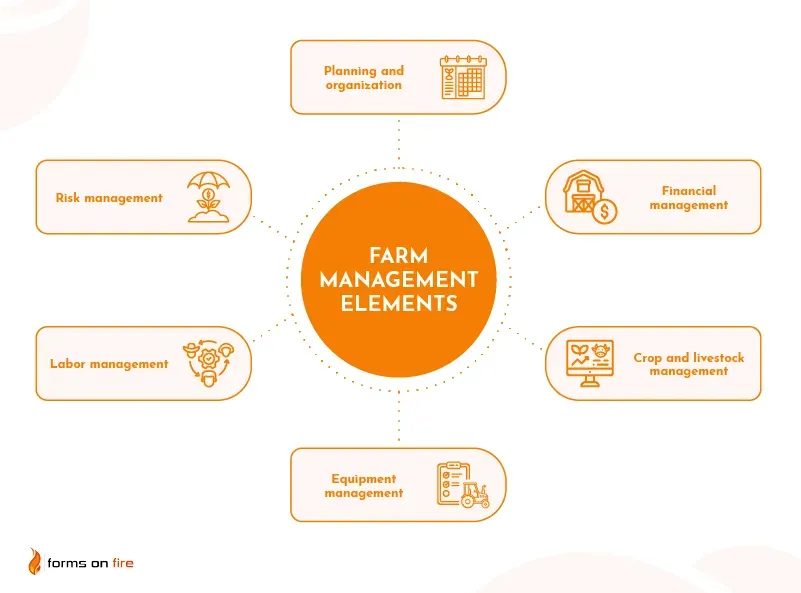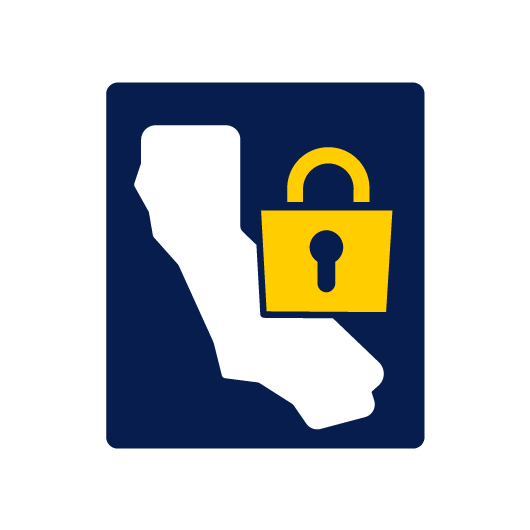A Complete Guide to Farm Management
Farm management extends beyond just planting crops and raising livestock — it is a strategic approach to overseeing all aspects of a farming operation. From planning and organization to risk and financial concerns, effective farm management ensures that resources are used safely, efficiently and sustainably.
In the following sections, we'll explore common elements, challenges, and key principles of effective farm management. Plus, we will show how digital tools like Forms On Fire can help streamline many of the daily tasks and reduce administrative work for farmers and farm managers.
Let’s start from the top.
What is farm management?
Farm management is the science and art of operating a farm as a business. At its core, farm management revolves around making strategic and operational decisions to optimize the farm's productivity and profitability. The goal of effective farm management is to maximize the efficient use of resources — land, labor, capital, and inputs — to achieve sustainable agricultural production.
This requires balancing the immediate needs of the farm with the long-term sustainability of its operations. Farm managers need to navigate economic fluctuations, adapt to changing market demands, and implement practices that protect the environment.
Effective farm management leads to numerous benefits, including:
- Increased efficiency: Streamlined processes reduce waste and cost, maximizing the return on investment for every acre and animal.
- Enhanced productivity: Optimal use of inputs and resources leads to higher yields and better quality products.
- Better risk mitigation: Strategic planning and management help anticipate and mitigate risks associated with agriculture, from adverse weather conditions to fluctuating market prices.
- Higher sustainability: Incorporating sustainable practices ensures the long-term health of the land and resources.
This scope of work requires farm managers to wear many hats, taking on responsibilities that range from the day-to-day to the strategic. It is a role that can often be both challenging and rewarding.
What does farm management cover?
Farms have a lot of moving parts. Farm management ensures none of them are overlooked.

Planning and organization
Effective planning and organization are the bedrock of successful farm management. They not only save time and resources but also help predict and mitigate potential challenges.
Here are its key components:
- Strategic business planning: Farmers should work on setting long-term goals and mapping out the strategies to achieve them. This means assessing market conditions, evaluating farm performance, and identifying opportunities for growth and improvement.
- Operational planning: This focuses on the day-to-day management of the farm. It includes scheduling planting and harvest times, organizing labor schedules, coordinating the maintenance of equipment, and so on.
- Resource allocation: Efficient use of resources such as seeds, fertilizers, water, and energy is critical. Planning helps ensure that these resources are used optimally to maximize output while minimizing waste.
- Contingency planning: Every farm should have some measures in place to prepare for unforeseen events like adverse weather or pest outbreaks.
For any farm, big or small, proper planning and organization is key to running a successful business.
Financial management
Every business needs to worry about and carefully manage its finances — and farms are no exception. Here are the core aspects of financial management in farming:
- Budgeting: Creating detailed budgets helps farm managers plan for upcoming expenses and anticipate revenue. This is crucial for maintaining financial balance and ensuring funds are available for necessary inputs and operations.
- Cash flow management: Monitoring the inflow and outflow of cash is essential to keep the farm operational. It helps you plan major purchases and avoid financial strain.
- Cost management: Keeping track of all costs, including fixed and variable expenses, is key to minimizing unnecessary expenditures. This includes costs associated with inputs, labor, machinery, and maintenance.
- Financial analysis and reporting: Regular financial analysis and reporting helps in understanding the economic impact of different farm management decisions.
Crop management
Effective crop management aims to maximize yield and quality while ensuring sustainability. This involves a variety of practices tailored to the specific needs of each crop and the environmental conditions of the farm.
In general, crop management includes tasks such as selecting seeds, setting planting and harvesting times, maintaining soil health, managing water and irrigation systems, and minimizing the damage from weeds, pests, and diseases.
Modern crop management often incorporates precision agriculture techniques. Tools like GPS mapping, satellite imagery, and other data-driven technologies enable farm managers to make precise and informed decisions about when and how to plant, treat, and harvest crops.
Livestock management
Livestock management focuses on the comprehensive care and administration of animals raised for profit, including cattle, sheep, goats, pigs, and poultry. Its goals are ensuring animal health, productivity, and welfare.
Here are some of the essential practices in livestock management:
- Breeding: Selecting the right breeds and employing effective breeding strategies are fundamental to improving herd quality.
- Nutrition: Feed management strategies must be tailored to the specific needs of each species and life stage.
- Health and veterinary care: Regular health checks, vaccinations, and prompt treatment of illnesses are crucial to maintaining a healthy livestock population.
- Housing and environment: Providing suitable housing that protects animals from extreme weather, allows sufficient space, and maintains hygiene can significantly affect their health and productivity. Environmental management also includes proper manure handling and ensuring adequate water supply.
- Welfare practices: Ethical treatment and handling of animals not only fulfill legal and societal expectations but also influence productivity and output.
These days, farmers can incorporate various technologies to increase efficiency and oversight. Tools such as electronic identification tags, automated feeding systems, and health monitoring devices help managers keep track of individual animals and manage large herds more effectively.
Equipment management
Effective equipment management involves the selection, procurement, and maintenance of various types of farm machinery and equipment, from tractors and combines to irrigation systems and more.
The key aspects of farm equipment management are:
- Selection of equipment: Factors to consider include the size of the farm, the type of crops or livestock, and the specific needs of the operation.
- Maintenance and repair: Proper storage conditions and regular maintenance is crucial to extend the lifespan of farm equipment and prevent unexpected breakdowns. This includes routine checks, lubrication, cleaning, part replacements, and timely repairs.
- Operational training: All personnel should be properly trained to operate “their” piece of equipment to ensure safety and efficiency.
- Record keeping: Keeping detailed records of equipment status, maintenance schedules, and repair history helps plan and budget for future equipment needs. This data is also essential for troubleshooting problems and making informed decisions about upgrades or replacements.
Farm managers often struggle with scheduling and keeping track of maintenance work, especially on larger farms with diverse equipment and infrastructure. One way to solve this problem is by digitizing these processes.
For example, farmers can use Forms On Fire to create schedules, assign maintenance work, provide equipment-specific checklists for technicians and operators, keep detailed history records, and much more.
Labor management
Farm labor management encompasses the recruitment, organization, and supervision of farm staff. Its goal is to ensure that the farm operates smoothly and efficiently by creating a productive and safe working environment.
Some of the major tasks include hiring reliable workers, providing necessary training, scheduling work, ensuring health and safety on the farm, and addressing conflicts swiftly and fairly.
Again, farm managers can use mobile technology and Forms On Fire to streamline many of these tasks. They can build a system to track hiring and labor costs, create standardized training and onboarding checklists, and streamline any type of farm audit they want to conduct.
Risk management
Farm operations are threatened by all kinds of risks, including:
- Weather events such as droughts, floods, and storms.
- Price volatility, fluctuating market demands, and economic downturns.
- Diseases in crops and livestock.
- Machinery breakdowns, labor shortages, and logistical challenges.
- Changes in agricultural regulations or non-compliance with laws that lead to penalties and operational disruptions.
Proper risk management on a farm includes identifying potential risks, assessing their likelihood and impact, and implementing strategies to mitigate or manage these risks effectively.
Technology solutions farmers should consider
Automation has revolutionized traditional farming methods, introducing robotic systems for tasks like planting, harvesting, and milking, which not only reduce labor costs but also increase precision and efficiency.
GPS technology and drones have transformed how farmers manage their fields, allowing for precise planting, fertilizing, and pest control. These tools enable farmers to apply resources exactly where and when they are needed, minimizing waste and enhancing crop production.
Now, some of those solutions might only be feasible for large farming operations. That’s not a problem for digital solutions, which can help both big and small farmers alike.
Modern farm management software is a game-changer, digitizing and optimizing workflows that were traditionally manual and time-intensive. You can automate the tracking of crop rotations and livestock feed schedules, integrate financial management to keep real-time tabs on costs and revenues, and manage employee assignments without cumbersome paperwork.
Maybe the best part is that these tools keep all of the data in one place — helping farmers make quick, informed decisions that are crucial for both strategic and day-to-day operations.
Streamline farm management with Forms on Fire
Forms on Fire is designed to help businesses replace paper-based systems with customizable digital forms.
Whether it’s logging daily inputs, tracking livestock health, or managing equipment maintenance, our tools enable all data to be captured on mobile devices directly from the field. The forms work online and offline, so farm workers can use them even in places with no internet connection.
If you’re looking to digitize farm management tasks, Forms On Fire can make that happen. As an example, here’s how Cal-Maine Foods used our platform to streamline on-site hen-house inspections, implement food traceability, and improve operational efficiency.
We have hundreds of pre-made templates in our database for various farm management tasks which can be easily copied and adjusted to specific needs. And our amazing customer support agents are ready to jump in at any time to help you set everything up.
If you’re ready to start digitizing your farm operations, learn more by taking a free trial or scheduling a product demo.




